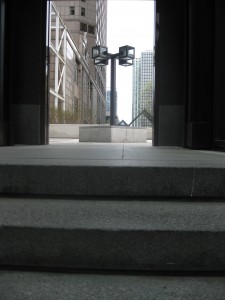 Just when you think you’ve “moved on” and accepted your new normal, you notice someone who reminds you of your beloved. Or you reach into your closet and pull an old sweater to your face and your mind floods with images of the one you’ve lost. Or you sit on the edge of your bed to get dressed and remember how you sat there that day – stunned by feelings of loss and grief. How can it be? You’re right back where you were before.
Just when you think you’ve “moved on” and accepted your new normal, you notice someone who reminds you of your beloved. Or you reach into your closet and pull an old sweater to your face and your mind floods with images of the one you’ve lost. Or you sit on the edge of your bed to get dressed and remember how you sat there that day – stunned by feelings of loss and grief. How can it be? You’re right back where you were before.
If this sounds at all familiar to you in your journey with grief, you are not alone. While the stages of grief, as described by Kubler-Ross, are very appealing – especially in their linear nature, i.e., that we will achieve acceptance and be done – the reality of grief is much more varied. It is complicated, and, well, not stage like at all. Perhaps it’s more of a circle than a line that goes:
Denial –> Anger –> Bargaining –> Depression –> Acceptance
The human mind likes to understand things and categorize them. We’re constantly trying to make sense of our experiences and stages are very appealing. Definitely, there is a lot that makes sense in what Kubler-Ross described and it may mirror our experience.
However, I think a more fluid and less linear approach may be more helpful. For example, we might continue to operate with some form of denial even as we experience acceptance. Though they may sound contradictory, in our day-to-day experience they may operate together. For example, as I accept the death of a loved one, I still may experience, at times, shock or a sense of denial that she is not there when I turn to talk her or I may expect her witty comeback in a conversation.
I think this is where the beauty lies in using creative tools and resources as we journey with our grief. Generally, these tools are not linear and ask our logical brains to quiet down. When we’re in this creative space, we can touch on internal resources to sit with our grief and help us make meaning in a new way. We can explore where our grief or anger resides within our body and how that might help us to discover ways that we can feel better. Or we can create a new self-portrait that shows how the shattered pieces of our former lives are pieced back together in new ways.
These creative approaches to being with grief are at the core of the Creative Grief Studio’s program and woven throughout the work that I do as a grief coach. Please reach out if this sounds like it will be helpful to you. Also, know that the back and forth / highs and lows of grief are a normal part of this very circular and spiraling process.
Wishing you abundant peace!

 “For after all, the best thing one can do when it is raining is let it rain.”
“For after all, the best thing one can do when it is raining is let it rain.” met me in the waiting room and asked how things were going during those first few weeks of classes and settling back into the routine of college life. I don’t recall what I said to her, but I do remember very clearly what she said to me, “Do you know how many times you just said, ‘should’?” I was startled by her question, but startled in a good way. I left the counseling center a lot calmer, quieter and reflecting on how many times I say, “should.”
met me in the waiting room and asked how things were going during those first few weeks of classes and settling back into the routine of college life. I don’t recall what I said to her, but I do remember very clearly what she said to me, “Do you know how many times you just said, ‘should’?” I was startled by her question, but startled in a good way. I left the counseling center a lot calmer, quieter and reflecting on how many times I say, “should.” after-school activities for my daughter. It seems mind-boggling sometimes to face the sheer volume of ways that we can use our time.
after-school activities for my daughter. It seems mind-boggling sometimes to face the sheer volume of ways that we can use our time.